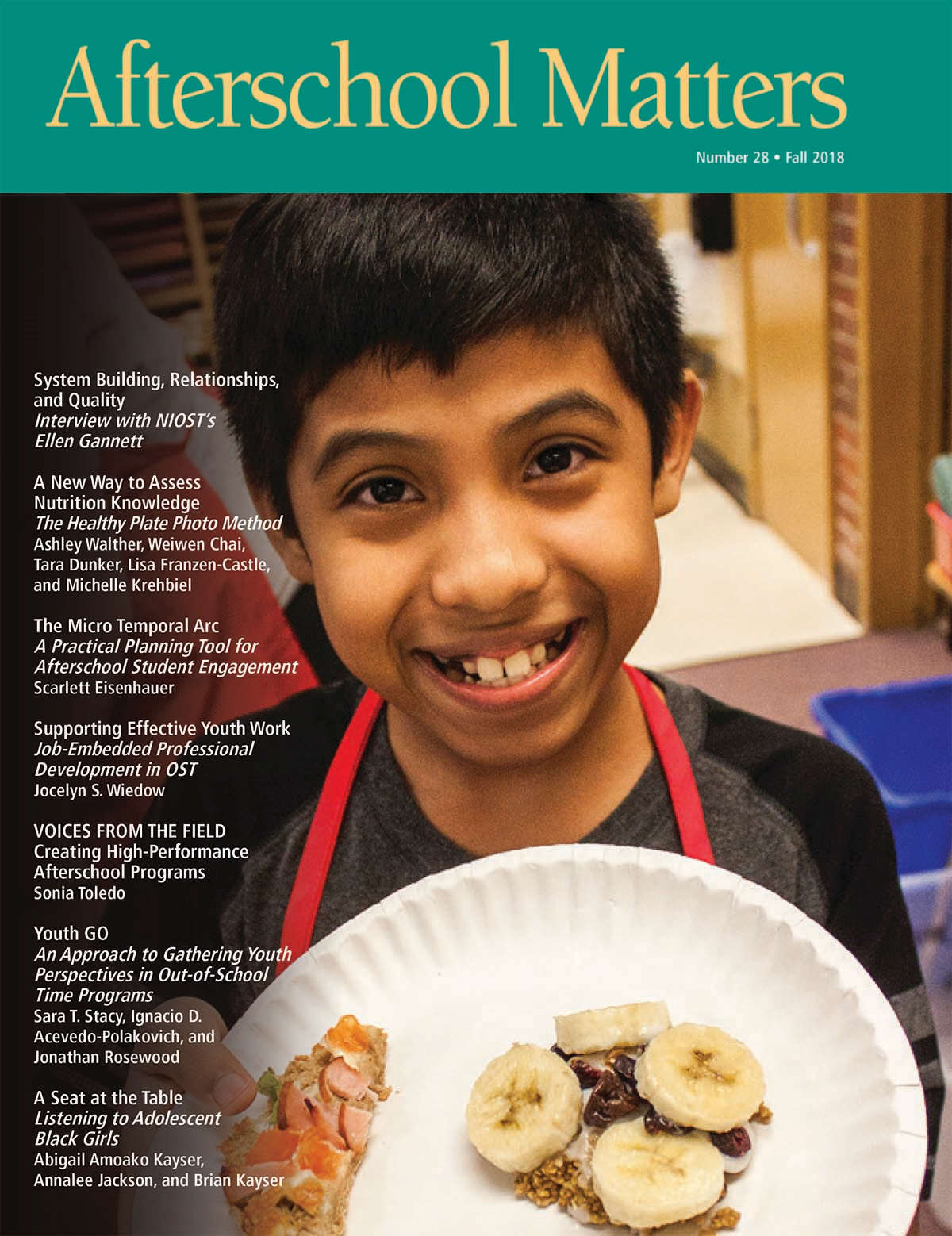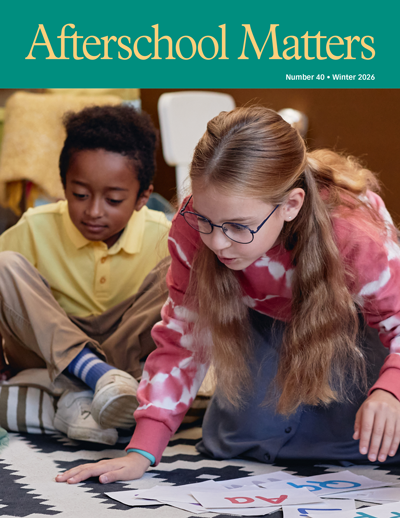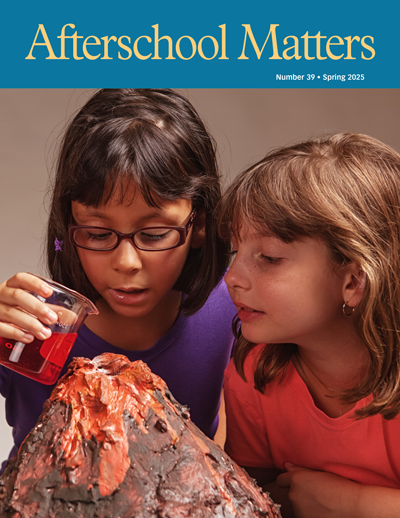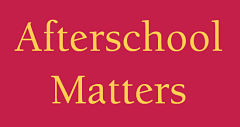System Building, Relationships, and Quality in Out-of-School Time
November 23, 2018
 The newest issue of Afterschool Matters, the national, peer-reviewed journal dedicated to promoting professionalism, scholarship, and consciousness in the field of afterschool education, reflects on the field’s ability to help provide students with experiences outside of the classroom that give them opportunities to stretch their skills, grow friendships, and challenge their limits.
The newest issue of Afterschool Matters, the national, peer-reviewed journal dedicated to promoting professionalism, scholarship, and consciousness in the field of afterschool education, reflects on the field’s ability to help provide students with experiences outside of the classroom that give them opportunities to stretch their skills, grow friendships, and challenge their limits.
“The influence of extracurricular and out-of-school time programs arguably depends less on the type of activity than on the personal encounters with caring adults—the ones who carefully craft the tasks and conversations that make up each activity,” writes Managing Editor Georgia Hall, Ph.D., senior research scientist at the National Institute on Out-of-School Time (NIOST). “Afterschool practitioners who do their best can nurture vital skills and abilities in the young people they serve. Practitioners who are their best build caring and trusting relationships.”
Contributor Scarlett Eisenhauer, Ph.D., notes that for many youth, afterschool programs positively fill the time between school and home, noting that quality OST programs have beneficial social and academic effects for the youth. Her current research interests include variable pathways towards youth contextualized wellbeing and the incorporation of embodied reactivity into ethnographic methodologies. Eisenhauer’s study of an afterschool theater program builds on the concept of a temporal arc to examine how ongoing intentional engagement of youth—such as having instructors structure each day’s activities to culminate in a product—can have long-term benefits.
“Realizing the potential for improved social and academic outcomes depends at least in part on the ways in which afterschool programs are structured,” Eisenhauer writes. “At the most basic level, in order to gain the potential benefits of afterschool programming, young people must participate. The potential for positive outcomes of OST programming, beyond simply having a safe place to be after school, is a function of young people’s participation.”
Other research and program-focused articles included in the Fall 2018 issue of Afterschool Matters include:
- “System Building, Relationships, and Quality: Interview with NIOST’s Ellen Gannett,” an interview between Hall and NIOST’s former long-term director now a senior strategist;
- “A New Way to Assess Nutrition Knowledge: The Healthy Plate Photo Method,” by Ashley Walther, Weiwen Chai, Tara Dunker, Lisa Franzen-Castle, and Michelle Krehbiel, from University of Nebraska-Lincoln;
- “The Micro Temporal Arc: A Practical Planning Tool for Afterschool Student Engagement,” by Eisenhauer;
- “Supporting Effective Youth Work: Job-Embedded Professional Development in OST,” by Jocelyn S. Wiedow of Sprockets in St. Paul, MN;
- “Creating High-Performance Afterschool Progreams,” by Sonia Toledo of Dignity for Children and an 2015-2017 Afterschool Matters Practitioner Research Fellow;
- “Youth GO: An Approach to Gathering Youth Perspectives in Out-of-School Time Programming,” by Sara T. Stacy, Ignacio D. Acevedo-Polakovich, and Jonathan Rosewood, from Michigan State University;
- “A Seat at the Table: Listening to Adolescent Black Girls,” by Abigail Amoako Kayser, Annalee Jackson, and Brian Kayser, from the Unviersity of Virginia.
Through the Afterschool Matters Initiative, NIOST offers out-of-school-time (OST) professionals unique opportunities to expand their own research, evaluation, program development, and policy-making skills. Published two to three times annually with legacy support from the Robert Bowne Foundation, the Afterschool Matters journal serves those involved in developing and running programs for youth during the out-of-school time hours, in addition to those engaged in research and in shaping youth development policy. An affiliated initiative—the National Afterschool Matters Fellowship—is a two-year professional development and leadership training program unique in its national reach and incorporation of technology for ongoing collaboration. This partnership between two experienced national leaders, NIOST and the National Writing Project (NWP) is also supported by funding from the Robert Bowne Foundation.
For nearly 40 years, the National Institute on Out-of-School Time (NIOST) has been a leader in defining, shaping, and promoting out-of-school time (OST) as a distinct professional field with evidence-based quality standards. NIOST bridges the worlds of research and practice to provide OST directors, staff, planners, school administrators, community leaders, and others with research, training, evaluation, and consultation to enhance and improve the quality of programs for all children and youth. NIOST is a program of the Wellesley Centers for Women (WCW), a premier women- and gender-focused, social-change oriented research-and-action institute at Wellesley College. In addition to her leadership role at NIOST, Hall serves as an associate director of WCW.
More information about Afterschool Matters, including links to current and past issues of this free journal, is available at niost.org/afterschoolmatters.



